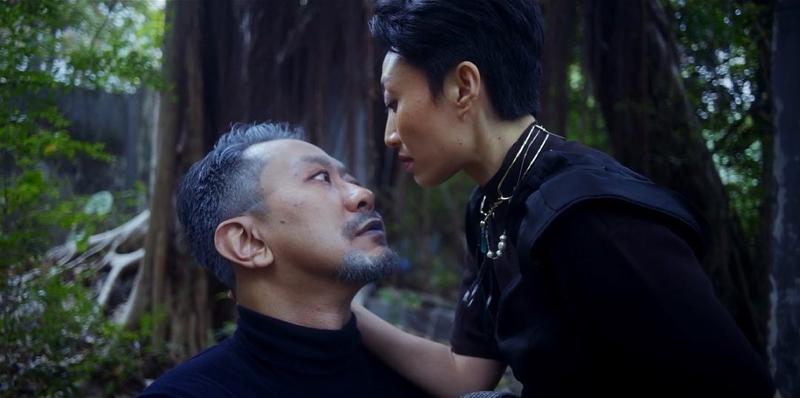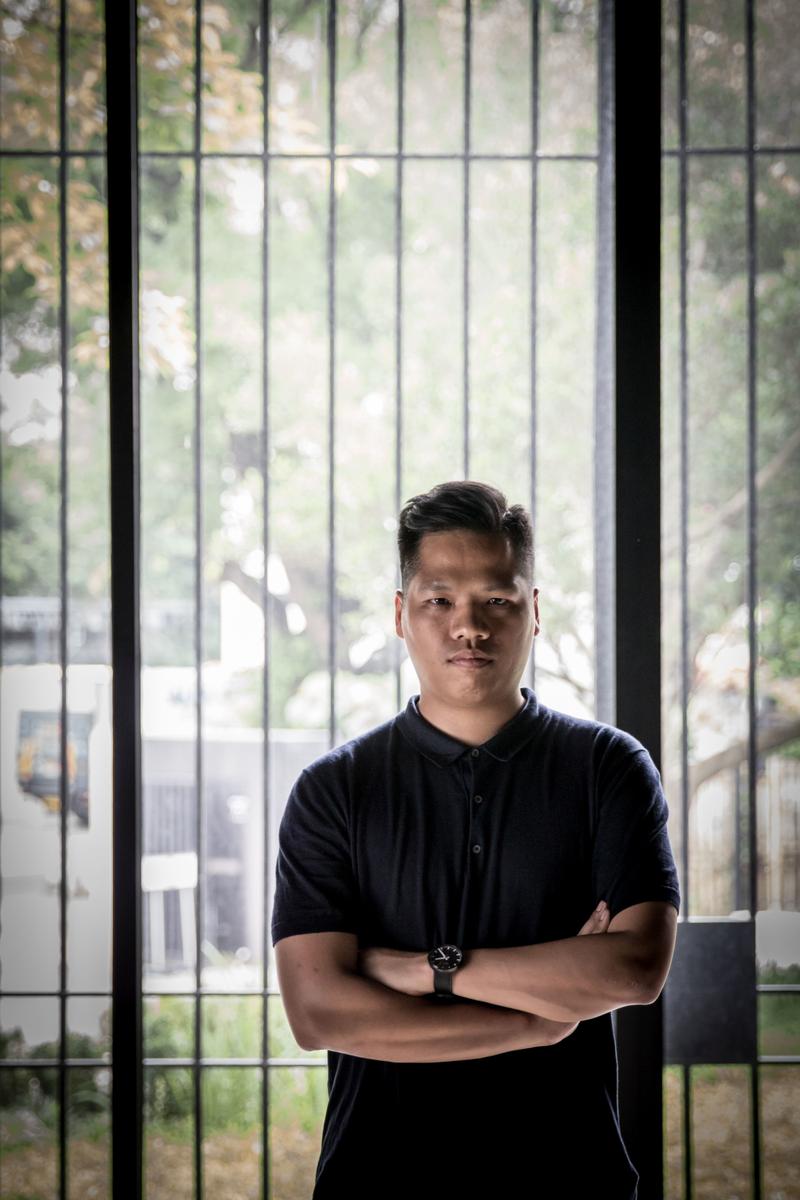 The figures of the Dark Lady, Fair Youth and mature Shakespeare come together in a scene from #1314. (PHOTO PROVIDED TO CHINA DAILY)
The figures of the Dark Lady, Fair Youth and mature Shakespeare come together in a scene from #1314. (PHOTO PROVIDED TO CHINA DAILY)
Théâtre de la Feuille’s latest offering, #1314, looks at Shakespeare’s sonnets — a series of 154 love poems published in a quarto in 1609 — through a contemporary lens. The title comes from Chinese slang, in which “1314” means “forever”, usually preceded by “I love you” or a similar phrase. The hashtag is a nod to social media, as many people today court one another and make declarations of romantic love in the virtual realm.
The production — staged at the end of last month at Sha Tin Town Hall — is set in a timeless space. The proscenium stage is left bare, stripped of its wings, teaser curtains and cyclorama. Backstage, with its dressing rails and numerous amplifiers, is completely visible. Toward the end of the show, the actors take off and scatter their costumes all across the stage on their way out. In this exposed and unadorned space, now a picture of dereliction, the lighting rigs are lowered to take center stage. For around five minutes, the stage machinery performs a synchronized “dance” to unheard music.
 The Bard (Chu Pak-him) comes face to face with the Dark Lady (Han Mei) in #1314, the microfilm. (PHOTO PROVIDED TO CHINA DAILY)
The Bard (Chu Pak-him) comes face to face with the Dark Lady (Han Mei) in #1314, the microfilm. (PHOTO PROVIDED TO CHINA DAILY)
Ata Wong, #1314’s director, says that by drawing attention to a stage without players, he aims to highlight the idea of the impermanence of life and relationships, informing much of his source material. “There is a great contrast, as the actors are gone and only the stage equipment stays,” says Wong, who intended to give his audience “a moment to digest, reflect and think” during the finale. His hope is that “this seemingly empty space”, rife with the traces of a just-concluded performance, might inspire the audience to let “all the echoes within ourselves and around us” sink in.
Taking a moment to let the dust settle might be a good idea, this being a production that requires more effort than usual on the part of the audience. For one, there is the obvious barrier of Shakespearean language and conceits that are no longer current. The sonnets, in particular, are full of innuendo, double entendre and cryptic clues, and are written in a formal, if not florid, style. The director has upped the ante by mixing up the order in which the sonnets appear in Shakespeare’s quarto, splicing together two or even three poems on occasion, and presenting #1314 like an opera in three languages — Mandarin, Cantonese and the original English.
 Théâtre de la Feuille’s founder, Ata Wong, deconstructs Shakespeare’s sonnets in #1314. Shakespearean deconstruction. (PHOTO PROVIDED TO CHINA DAILY)
Théâtre de la Feuille’s founder, Ata Wong, deconstructs Shakespeare’s sonnets in #1314. Shakespearean deconstruction. (PHOTO PROVIDED TO CHINA DAILY)
The action on stage is highly stylized, adding another layer of obfuscation to the often abstract and indeterminate nature of the ideas contained in the sonnets. The overall tone of the production is dominated by the themes of the mutability of love, and the visceral emotions of jealousy, betrayal and despondency that inevitably follow. The scene in which the Dark Lady (to whom sonnets 127 to 154 are addressed) stands atop a human pyramid, and the oldest Shakespeare (there are three of them, representing the Bard at different life stages) tries to destabilize the love shrine he himself had built by tearing his younger selves away from it, is among the more obviously symbolic depictions of jealous passion.
The actors wrote the music for their own parts. Wong shares that his process involves receiving creative inputs from company members. It also made sense to use the skills of those of his cast with a musical background. Han Mei, who plays the Dark Lady, was the first runner-up in Hong Kong’s 18 District Singing Contest in 2018, for example. And Chu Pak-him, who portrays the mature Shakespeare, plays in local indie band Juicyning.
It was up to the music director, Charles Kwong, to weave compositions by a diverse bunch of actors into an integrated whole. If the interwoven product doesn’t come across as seamless, that’s probably intentional.


